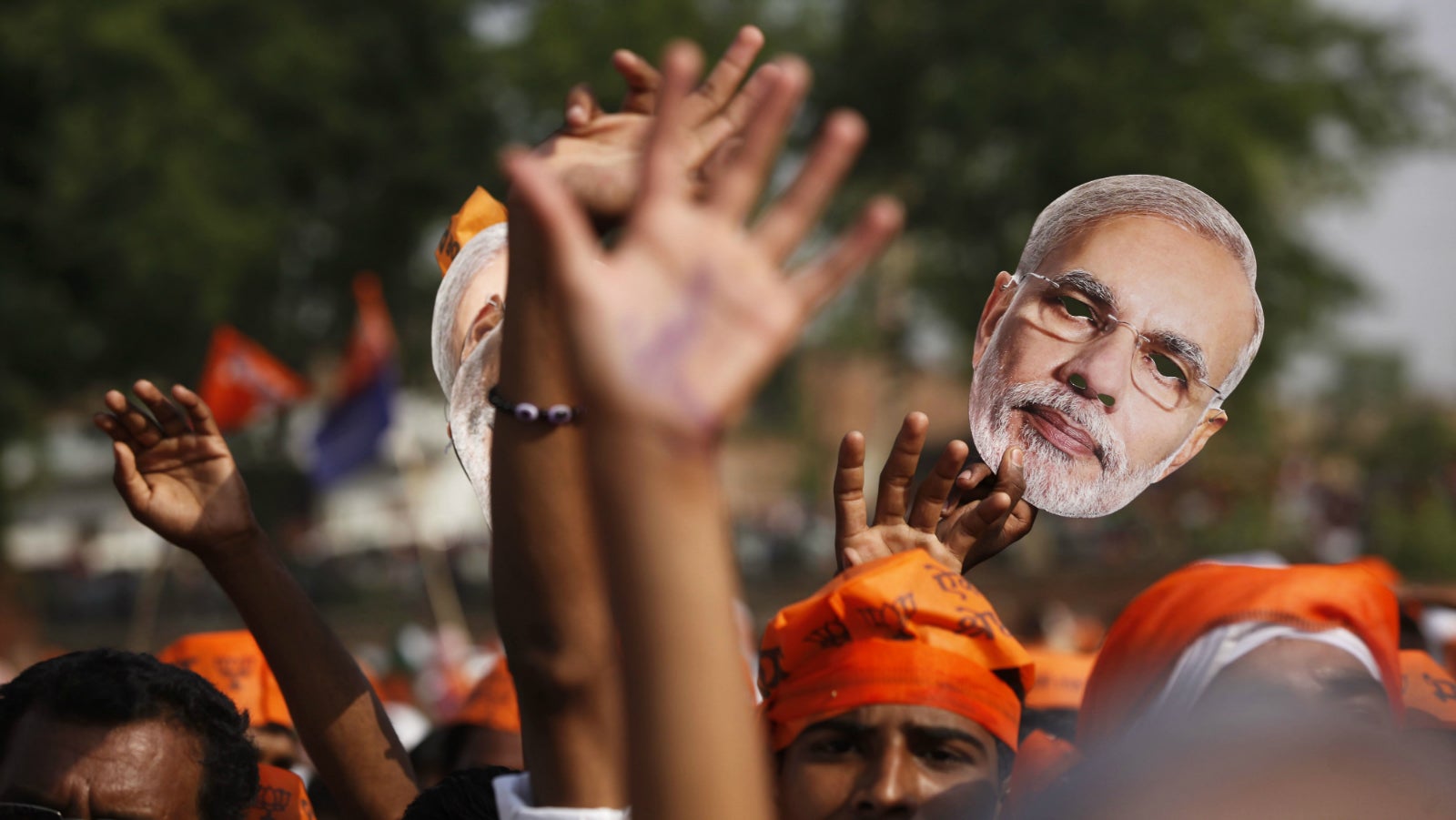After Obama, a US government commission has now punctured Modi’s secular rhetoric
Prime minister Narendra Modi may have been asserting India’s secular credentials lately, but a US government commission is not impressed with his track record on religious tolerance so far.


Prime minister Narendra Modi may have been asserting India’s secular credentials lately, but a US government commission is not impressed with his track record on religious tolerance so far.
A report by (pdf) the United States Commission on International Religious Freedom—which provides high-level policy recommendations to the government, and is led by commissioners appointed by the US president and Congressional leaders of both political parties—has questioned the Modi-led government’s ability to ensure religious and communal harmony in India.
It has been critical of the Indian government’s failure to protect minorities, stop forced conversions, communal violence, and for allowing ”a climate of impunity.”
Non-governmental organizations (NGOs) and religious leaders, including from the Muslim, Christian, and Sikh communities, attributed the initial increase to religiously-divisive campaigning in advance of the country’s 2014 general election. Since the election, religious minority communities have been subject to derogatory comments by politicians linked to the ruling Bharatiya Janata Party (BJP) and numerous violent attacks and forced conversions by Hindu nationalist groups, such as Rashtriya Swayamsevak Sangh (RSS) and Vishva Hindu Parishad (VHP).
At the same time, the report condemned the police’s bias towards India’s Christians. ”Reportedly, local police seldom provide protection, refuse to accept complaints, rarely investigate, and in a few cases encourage Christians to move or hide their religion,” the report said.
It did, however, term Modi’s address to the Christian community in February as a “positive development,” especially “given longstanding allegations that, as Chief Minister of Gujarat in 2002, Mr. Modi was complicit in anti-Muslim riots in that state.”
The report, which ranks countries on the basis of religious freedom, has assigned India Tier 2 status, countries that “engage in or tolerate violations that are serious” but are not the worst offenders globally.
India has been placed in the Tier 2 status since 2009, alongside the likes of Afghanistan and Russia.
Where’s the bromance?
This unflattering review of Modi’s term comes after months of diplomatic rapprochement, including a much-touted state visit by US president Barack Obama who even attended the Republic Day parade in New Delhi this January. Much was the chemistry between the leaders of the world’s two largest democracies that some termed as a “bromance.”
Yet, in his last speech in India before flying out, Obama meted out some tough love: “Nowhere is it going to be more necessary to uphold religious faith than in India. India will succeed so long as it is not splintered on religious lines.”
It did not end there. Almost a week later, Obama delivered another reminder. At the National Prayer Breakfast in February, the US president described India as “a place where, in past years, religious faiths of all types have, on occasion, been targeted by other people of faith, simply due to their heritage and their beliefs — acts of intolerance that would have shocked (Mahatma) Gandhiji, the person who helped to liberate that nation.”